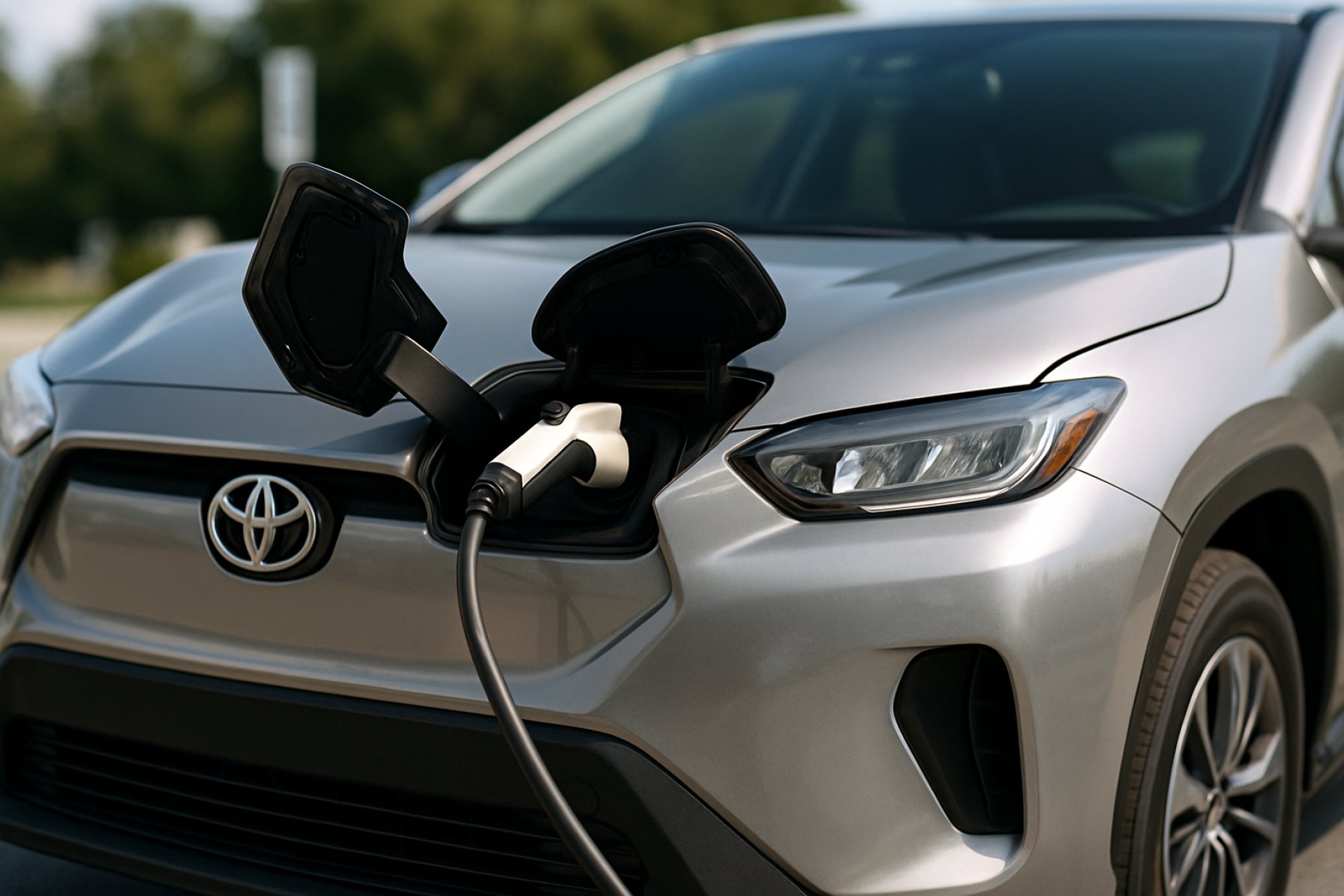Toyota’s Environmental Reputation on the Line: Is the Automaker Falling Behind in the Electric Vehicle Race?
With Toyota’s pivotal shareholder meeting looming, pressure mounts for the automaker to accelerate EV adoption and drop ties to climate deniers.
- 1.2%: Toyota’s share of fully electric vehicles in 2024 U.S. sales (national average: 9.1%).
- 207: Congressional campaigns backed by Toyota that oppose climate action.
- 14%: Projected GDP loss for Japan if it lags in EV adoption and exports.
- Over 75,000: Deaths prevented annually since stricter fuel and emissions standards were enacted in 2000.
Toyota, once a green pioneer with its groundbreaking Prius, now faces sharp criticism from dealers, industry insiders, and environmental advocates as it lags dangerously behind in the electric vehicle (EV) race. As Toyota’s high-stakes annual shareholder meeting approaches on June 10, mounting evidence suggests that the automaker’s tepid electrification strategy could threaten its global leadership—and the environment.
Longtime Toyota supporter and Lee Auto Malls Chairman Adam Lee warns that hybrids alone are no longer enough to fight the accelerating climate crisis. While Toyota revolutionized the auto industry in 2001 by championing hybrids, the pace of progress has stalled. Today, fully electric vehicles make up a paltry 1.2% of Toyota’s U.S. sales—a stark contrast to the steadily rising national average of 9.1%.
While global competitors surge ahead, Toyota continues to double down on plug-in hybrids and has been openly resistant to faster EV adoption. But advocates and experts say this strategy risks more than profits: it could cost millions of jobs in Japan, threaten at least 14% of the country’s GDP, and set back global climate progress just as other nations like China rapidly outpace Japan in the EV boom.
Toyota | EPA | U.S. Department of Energy | Electrek
Q: Why Are Critics Calling Out Toyota Now?
Dealers like Adam Lee have seen first-hand the demand for clean vehicles and the urgent need for tougher emissions policies. Toyota’s lagging EV rollout stands in stark contrast to its competition. Meanwhile, controversy erupted as Toyota became the auto industry’s leading supporter of politicians who oppose climate action—backing 207 congressional campaigns in recent election cycles.
Experts argue that Toyota’s aggressive lobbying against environmental standards, including public endorsements of efforts to weaken emissions and fuel efficiency regulations, threatens decades of progress. By the automaker’s own admission, without strong policy, the industry will not evolve quickly enough to combat air pollution and climate threats.
Q: What Are the Risks for Toyota and Japan?
Toyota’s resistance to full electrification is more than a PR blunder—it may jeopardize Japan’s position as a global auto export powerhouse. For more than 50 years, Toyota helped drive Japanese manufacturing dominance, but China’s focus on EV innovation now challenges that lead.
A recent report predicts that Japan faces a potential 14% GDP hit and the loss of millions of jobs if it fails to keep up with the global EV transition. Industry leaders warn that unless Toyota changes course, the ripple effect could devastate the nation’s economy and cost investors dearly.
How Can Toyota Regain Its Environmental Leadership?
Advocates urge Toyota’s shareholders, investors, and global customers to force a strategic pivot. This means:
- Accelerating the rollout of fully electric vehicles to match or surpass global competitors.
- Stopping financial support for political figures and groups that deny or block climate action.
- Redirecting lobbying efforts towards policies that strengthen, not weaken, environmental protections.
According to executives like Adam Lee, Toyota’s future—and that of the planet—hinges on living up to its legacy of innovation and responsibility.
How Can Consumers Drive Change?
Consumers wield real power. By choosing EVs and supporting brands committed to sustainability, car buyers signal the market’s direction. Tools like the EPA’s fuel economy guide help shoppers compare emissions and fuel efficiency. Additionally, investing in home charging solutions, including rooftop solar (find reliable installers at EnergySage), maximizes the environmental benefits of electric vehicles.
What’s Next? June 10 Shareholder Meeting Could Be a Turning Point
Industry insiders, climate advocates, and concerned Toyota fans are watching closely as the automaker’s annual shareholder meeting nears. Shareholder pressure now has the potential to steer Toyota back on track as a global green leader, safeguarding investments, jobs, and the environment for decades to come.
Now is the time to demand better from Toyota—consumers and shareholders alike must speak up for a cleaner, more competitive future!
-
Checklist to Drive Change:
- Ask carmakers where they stand on EV adoption and climate policies.
- Opt for fully electric vehicles and push dealers for more EV options.
- Urge Toyota and other brands to stop supporting anti-climate lobbying.
- Attend or contact Toyota’s June 10 shareholder meeting to voice your concerns.
- Stay informed via credible sources like Electrek and the NRDC.









